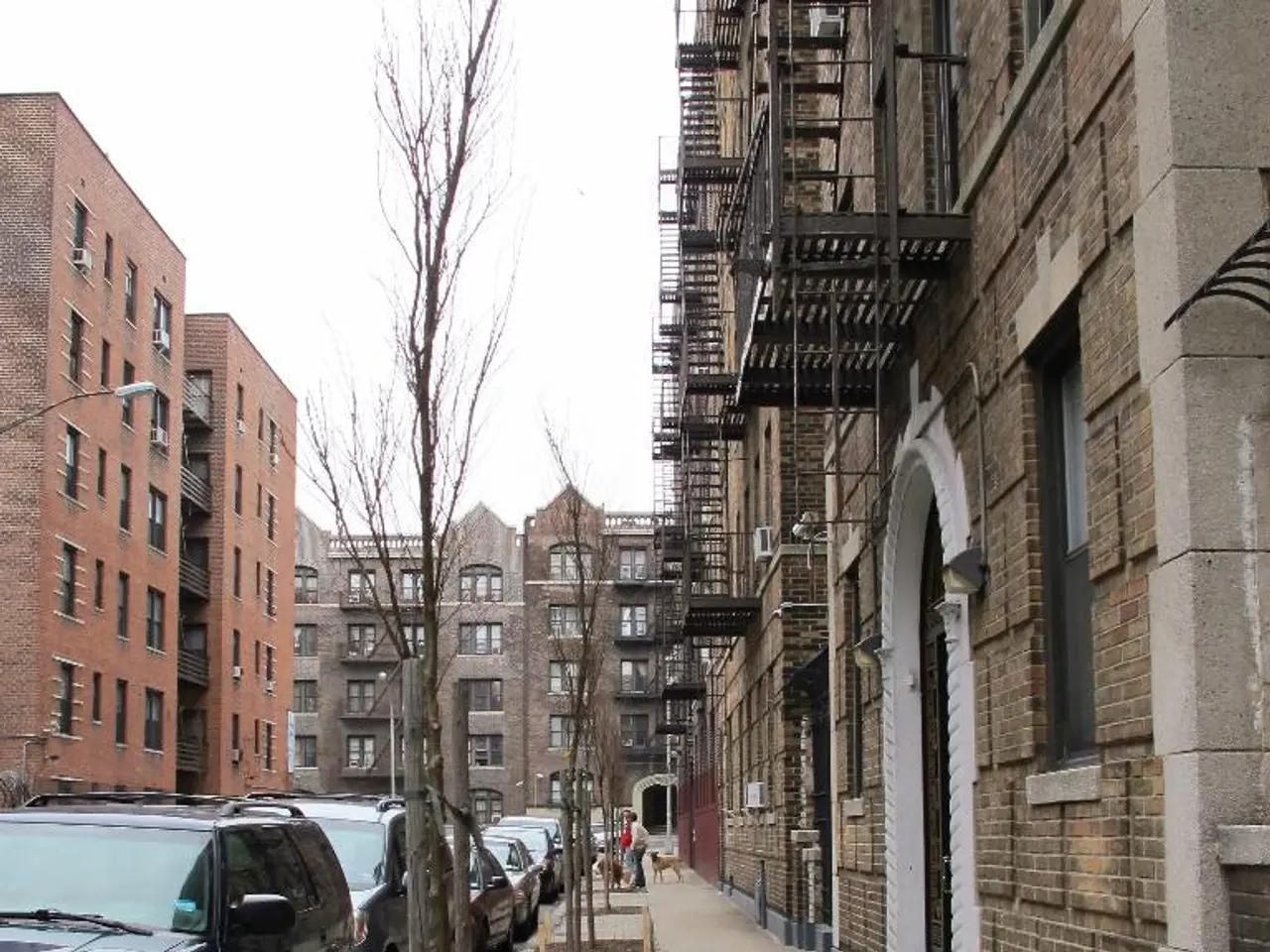The Evolution of Real Estate Commission Rules in Germany and Its Impacts
Pressure mounts as new legislation targets brokerage fees
The changing landscape of real estate commission rules in Germany has significantly influenced commission rates and market dynamics since 2021 and continues through 2025.
Changing Commission Rates
The introduction of shared commission rates between buyers and sellers in Germany, a shift from earlier practices, has evens out the financial burden for both parties. Commission rates typically range from 3% to 6%, with VAT added on top (approximately 19%) [1][2]. Although commission rates vary across regions in Germany and among brokers, reflecting local market conditions and competitiveness, the shared commission model suggests a more equitable distribution of costs [2].
Market Dynamics Amid Regulatory Changes
Transparency and regulatory requirements have tightened, particularly when it comes to foreign buyers. New rules necessitate thorough reporting to the Transparency Register for all foreign entities owning or buying property in Germany, aiming to combat money laundering risks associated with real estate transactions. This includes mandatory disclosure of beneficial ownership and exhaustive documentation of the source of funds [3][5].
While these regulations don't relate directly to commission rates, they increase compliance costs and procedural complexities for international buyers. This could influence market participation by non-residents and total transaction volumes [5]. German banking conditions remain relatively stringent, with foreigners often receiving loans amounting to up to 50% of the property value, and sometimes more for multiple mortgages, potentially affecting buyer demand and commission negotiations [5].
A More Regulated and Complex Market
The combination of shared commission costs, increased transparency, and financing challenges indicate a market that is slowly becoming more regulated, transparent, and equitable. However, these changes also make the market more complex for real estate agents to navigate. To attract clients amid these constraints, agents may offer competitive commission structures or additional services [4].
In essence, the new real estate commission rules in Germany have led to a standard practice of shared commissions between buyer and seller, with typical total rates of 3–6% plus VAT [1][2]. Strict transparency and reporting requirements primarily impact foreign buyers, increasing compliance costs and complexities in the market without directly affecting commission rates [3][5]. These factors contribute to a more tightly regulated market environment that impacts both commission dynamics and the real estate transaction process.
[1] Bundesimmobilienverband (2021). https://www.vbn.de/immobilien/immobilienmarktverlaesse/verlaeUssung-und-kosten-vergleich-im-miet-,-verkaufs- und-grundstuecksmarkt
[2] Wiesenthal, A. (2022). https://www.tagesschau.de/wirtschaft/immobilien/tankstation-im-mieter-markt-101.html
[3] Transparency Register (2021). https://www.register-bund-und-laender.de/
[4] Voigtländer, M. (2022). An unpublished study on the new brokerage fee (In German)
[5] German Banking Association (2022). https://www.bankenverband.de/en/our-position/real-estate/foreign-buyers/
- In the context of Germany's evolving real estate market, economic and social policy changes, such as the introduction of shared commission rates, have affected the finance sector and investing activities, with commission rates ranging from 3% to 6% plus VAT.
- The increased transparency and regulatory requirements in Germany's real-estate market, particularly for foreign buyers, have indirectly impacted commission dynamics by adding compliance costs and procedural complexities, potentially influencing market participation and total transaction volumes.








